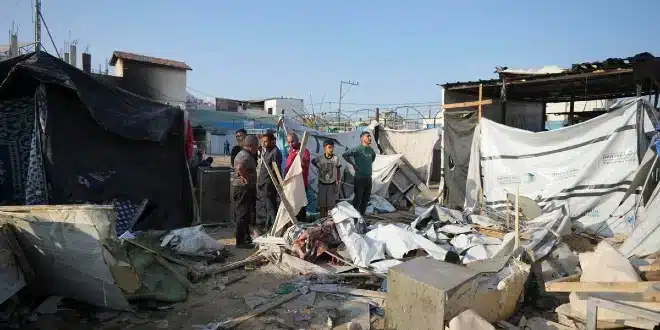Qatar’s recent decision to suspend its mediation efforts between Israel and Hamas has dashed hopes for a truce in the Gaza conflict and a possible hostage release deal. Qatar, which hosts the largest U.S. base in the Middle East and Hamas’s political office, had been key in facilitating indirect talks since the October 7 attack on Israel.
These negotiations represented the only real chance of securing the release of Israeli hostages held by Hamas and ending a war that has resulted in over 43,000 deaths in Gaza, as reported by Gaza’s health ministry. However, last week, Qatar announced it would pause its mediation role until both Israel and Hamas demonstrate a genuine commitment to ending the hostilities.
Current Status of Negotiations
Since a brief truce last year led to the release of scores of hostages in exchange for Palestinian prisoners, attempts at further negotiations have made little progress. Recently, Hamas rejected a proposal by Egypt and Qatar for a temporary truce, which they viewed as insufficient without a more lasting ceasefire. Israel has firmly stated it will not halt its military actions until its objectives—defeating Hamas and securing the hostages—are met.
Qatar’s role in the talks is considered crucial, as it is seen as a neutral mediator unlike other regional players. However, Andreas Krieg of King’s College London points out that the talks have reached a standstill. Additionally, Hamas’s leadership has been weakened by the deaths of key figures, complicating further negotiations.
Gulf analyst Anna Jacobs from the International Crisis Group notes that Hamas believes it had previously agreed to a U.S.-backed ceasefire plan, which ultimately failed to yield an agreement. Jacobs adds that Hamas sees Israel as undermining the talks by continuously introducing new conditions.
The Future of Hamas in Qatar
Reports have circulated that Qatar may be reconsidering its role as a host to Hamas. However, Qatari foreign ministry spokesperson Majed Al-Ansari emphasized that Hamas’s presence in Qatar is primarily to facilitate communication and has previously contributed to ceasefire efforts. A senior Hamas official confirmed that the group has not received any indication of a potential expulsion from Qatar. Although a diplomatic source suggested the Hamas office in Qatar may no longer be useful, analysts like Jacobs think an outright expulsion is unlikely.
In April, Qatar briefly asked several Hamas members to leave for Turkey, only to invite them back when negotiations needed facilitation. While Turkey has been suggested as a possible alternative host, its NATO membership and alliance with the U.S. make it an unlikely choice.
Jacobs suggests that, with Donald Trump set to take office on January 20, Hamas officials may stay away from Doha until more substantial talks resume.
Qatar’s Future Mediation Role
Qatar previously signaled its discontent with its mediator role in April but remains open to resuming talks when conditions are favorable. Krieg believes this suspension demonstrates Qatar’s leverage over Hamas and its readiness to mediate again if necessary.
Jacobs notes that Qatar’s relationship with Hamas has drawn scrutiny from U.S. policymakers, particularly among Congressional Republicans. She suggests Qatar’s recent actions may be an attempt to shield itself from criticism in anticipation of the incoming Trump administration and a potentially Republican-led Congress.


